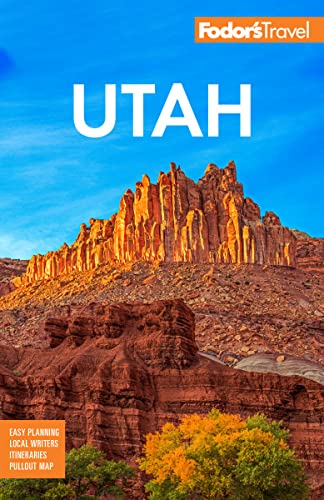Health
Salt Lake City and Logan are surrounded by mountains, which can trap pollution and create some of the worst air quality in the nation, particularly in winter. Red Alert action days happen several times a year (often for more than a week at a time) when strenuous activity, particularly by young and elderly people, is discouraged. Visit the Utah Department of Environmental Quality website to find out about air quality if you have asthma, allergies, or other breathing sensitivities.
COVID-19
A new novel coronavirus brought all travel to a virtual standstill in the first half of 2020. Although the illness is mild in most people, some experience severe and even life-threatening complications. Once travel started up again, albeit slowly and cautiously, travelers were asked to be particularly careful about hygiene and to avoid any unnecessary travel, especially if they are sick.
Older adults, especially those over 65, have a greater chance of having severe complications from COVID-19. The same is true for people with weaker immune systems or those living with some types of medical conditions, including diabetes, asthma, heart disease, cancer, HIV/AIDS, kidney disease, and liver disease. Starting two weeks before a trip, anyone planning to travel should be on the lookout for some of the following symptoms: cough, fever, chills, trouble breathing, muscle pain, sore throat, new loss of smell or taste. If you experience any of these symptoms, you should not travel at all.
And to protect yourself during travel, do your best to avoid contact with people showing symptoms. Wash your hands often with soap and water. Limit your time in public places, and, when you are out and about, wear a cloth face mask that covers your nose and mouth. Indeed, a mask may be required in some places, such as on an airplane or in a confined space like a theater, where you share the space with a lot of people.
You may wish to bring extra supplies, such as disinfecting wipes, hand sanitizer (12-ounce bottles were allowed in carry-on luggage at this writing), and a first-aid kit with a thermometer.
Given how abruptly travel was curtailed in March 2020, it is wise to consider protecting yourself by purchasing a travel insurance policy that will reimburse you for any costs related to COVID-19 related cancellations. Not all travel insurance policies protect against pandemic-related cancellations, so always read the fine print.




